Editor’s Note: On Wednesday March 16, the Lancet Nigeria Commission launched a landmark report studying health inequalities in Nigeria; calling for urgent action by policy makers to prevent diseases before they occur and to urgently increase access to health care for all Nigerians. In this thought leadership piece, Abdullahi Tsanni discusses the launch, key messages and recommendations from the report.
“The giant of Africa — Africa’s largest country in terms of population and economy — enjoys considerable unrealised potential. The time to achieve greatness is now, with health at the heart of the development agenda.” — The Lancet Nigeria Commission: Investing in health and the future of the nation.
The quote above summarises the report of The Lancet Nigeria Commission, entitled: “Investing in health and the future of the nation,” which was launched in Abuja Nigeria, on March 16, 2022 by Nigeria’s Vice-President, His Excellency Professor Yemi Osibanjo. The report published in one of the leading health journals, The Lancet, was put together by a multi-disciplinary team of Nigerian experts from around the world — including scientists, researchers, academics, and policymakers. They reviewed Nigeria’s health inequalities and made detailed recommendations on the opportunities to improve the country’s health metrics.
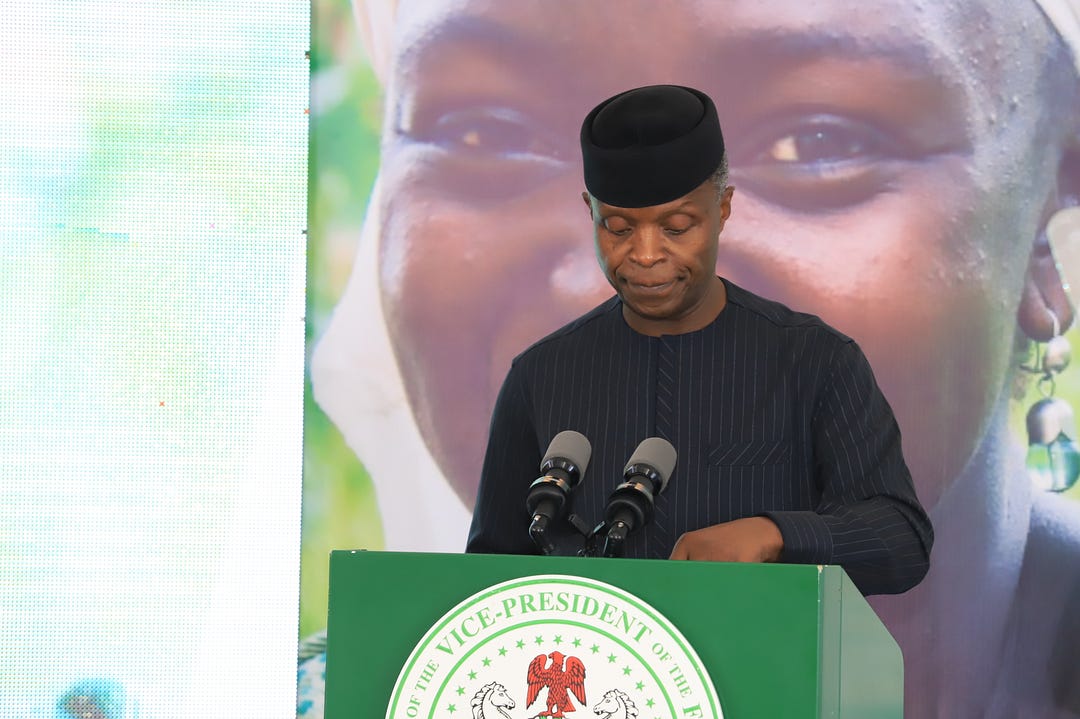
While delivering his keynote address, His Excellency Professor Yemi Osibanjo noted that the whole notion of the ‘One Nation, One Health’ policy to attain Universal Health Coverage would benefit segments of the Nigerian population that bear the highest disease burden — the poor.
“This [Commission] recommends prevention to be at the heart of health policy, given Nigeria’s young population and requiring a lot of government approach and community engagement,” said Prof. Osibanjo, adding that “the report proposes a new social contract centered on health to address Nigeria’s needs and define the relationship between the citizens and the states.”
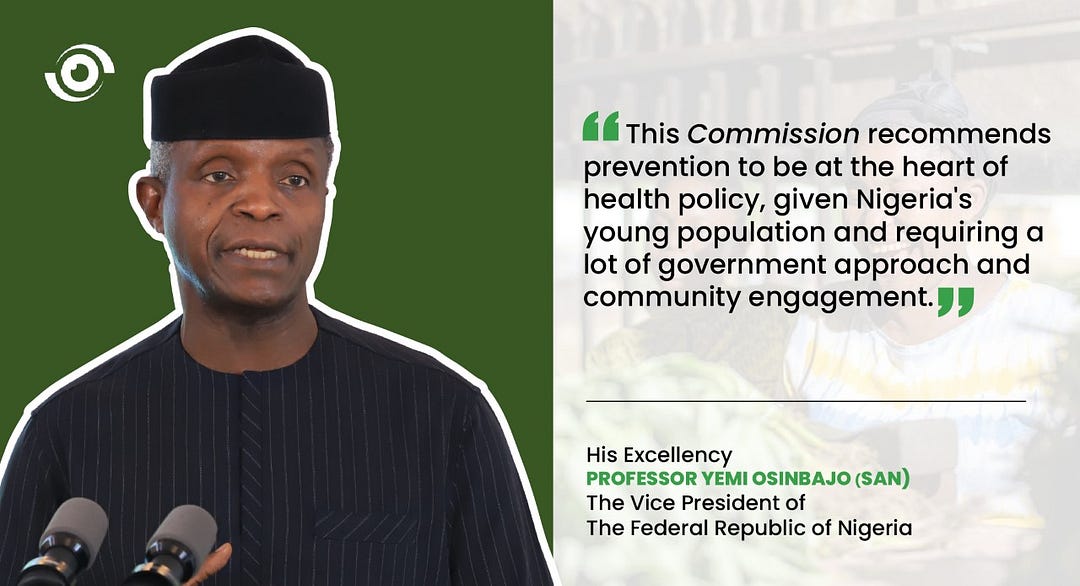
The report provides insight into the challenges of healthcare delivery in Nigeria and recommendations to change health policies, improve health outcomes for all Nigerians, and ultimately achieve Universal Health Coverage (UHC) — ‘One Nation, One Health’.
There is no doubt that Nigeria has an abundance of human capital with great potential to drive sustainable development and economic prosperity, but this potential is severely hindered as millions of Nigerians live in poverty — a condition that constrains the ability of the people to access quality healthcare services, among other things. To harness Nigeria’s full potential, health must be at the front and center of the national development agenda.
The level of investment in the nation’s public health will determine the accessibility and quality of healthcare services available to Nigerian citizens. This will play a crucial role in spurring productivity and economic, political, and social development.
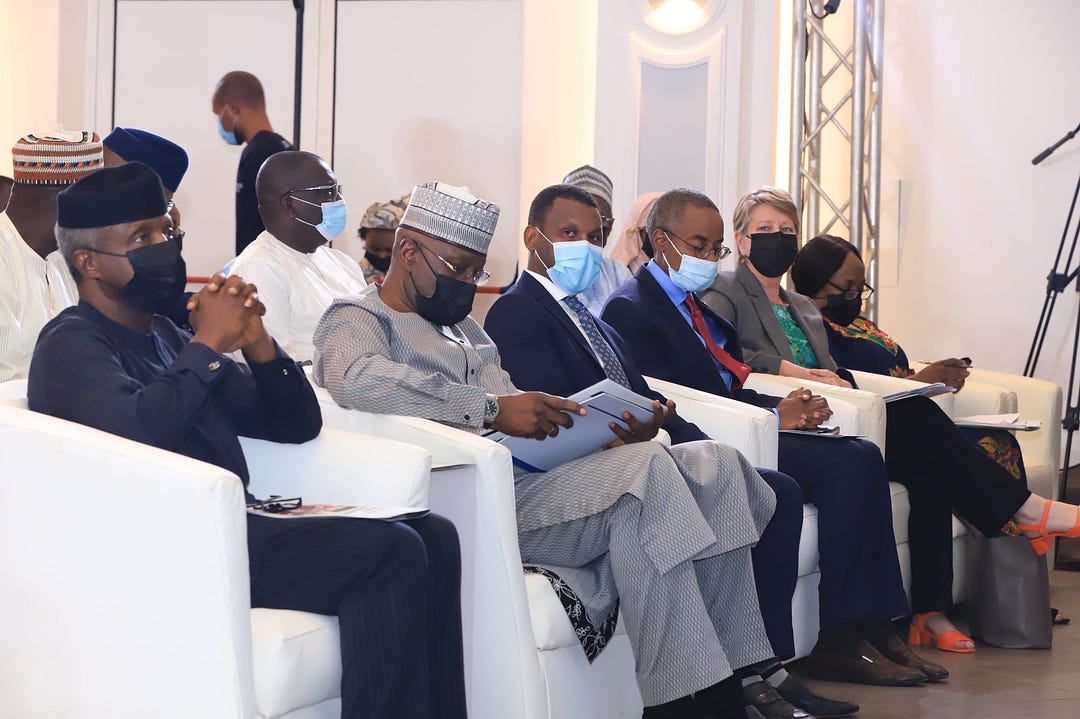
Other speakers present at the launch included the Secretary to the Government of the Federation, Boss Mustapha; Minister of State for Health, Dr Adeleke O. Mamora; Consultant in Microbiology & Infectious Diseases, Addenbrookes Hospital, Cambridge, Dr Sani Aliyu and The Lancet, Editor-in-Chief, Richard Horton. Professor Ibrahim Abubakar, Dean, UCL Institute for Global Health, London, and the lead author, delivered the presentation of the Commission report.
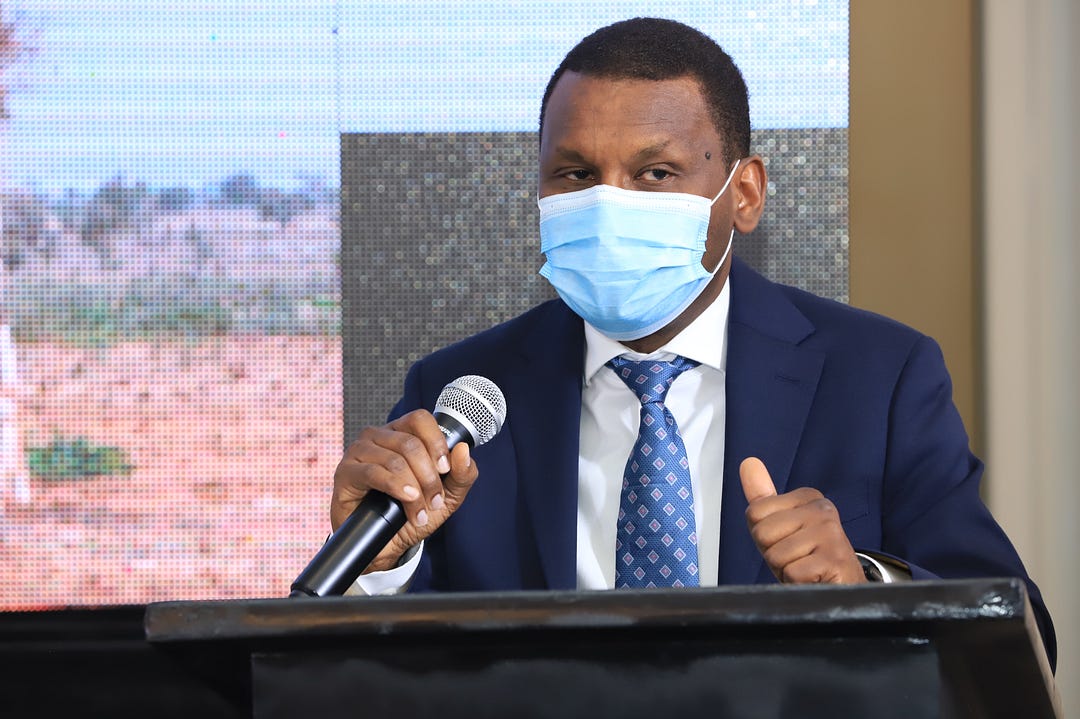
Professor Abubakar who led the team that wrote the report pointed to Nigeria’s disease burden analysis which shows a combination of a high burden of maternal and child mortality, a reduced yet significant burden of infectious diseases particularly malaria, and a growing burden of non-communicable diseases (NCDs). This poses a threat to Nigeria’s rapidly growing population. Lack of quality healthcare is a major obstacle for millions of Nigerians to live healthy lives. “Nigeria’s life expectancy at birth is just over 54 years, the fifth-lowest in the world”. He ended optimistically — “We aim to help reposition health policy in Nigeria to achieve health for all. Our vision is to provide recommendations to ensure the health and wealth of future generations of Nigerians. Our report offers specific recommendations on innovation financing and specific interventions to improve healthcare staffing, information systems and access to care for all”.
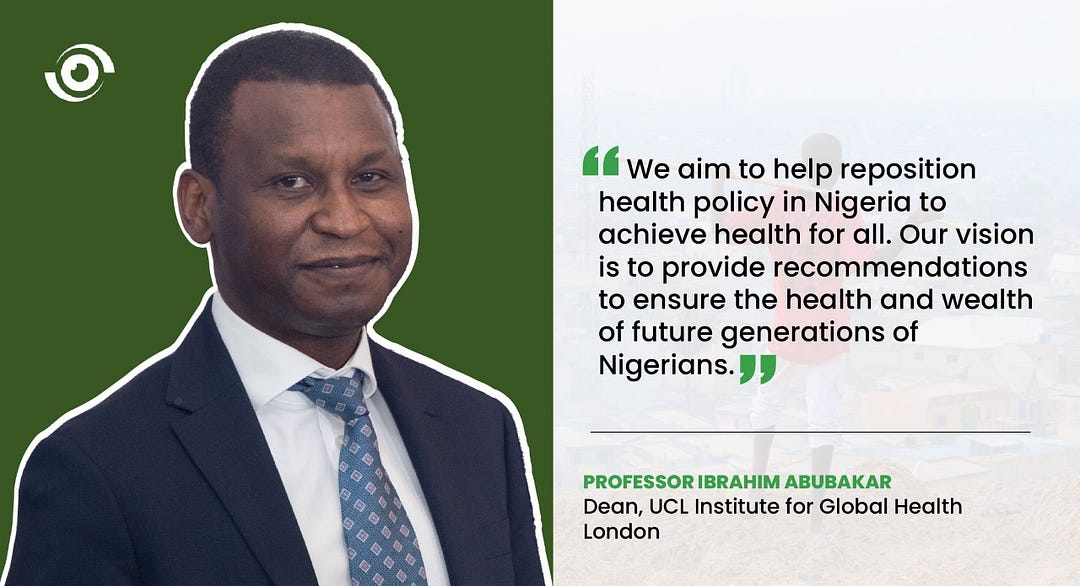
Professor Iruka Okeke, a pharmaceutical microbiologist, at the University of Ibadan, Nigeria, and one of the Commissioners, said, with the vast majority of people in Nigeria as young adults, the country has to work towards deriving value from its demography. Of the over 200 million Nigerians, nearly half are aged under 19. “If we invest in these people, we could be an enormously great country. If we invest in public health, provide access to quality healthcare, and keep the population healthy, we will save a lot of money, and the people are going to be productive and create jobs in the country. We are at the point where we should take this enormous human resource to spur economic prosperity for our nation”, said Professor Okeke.
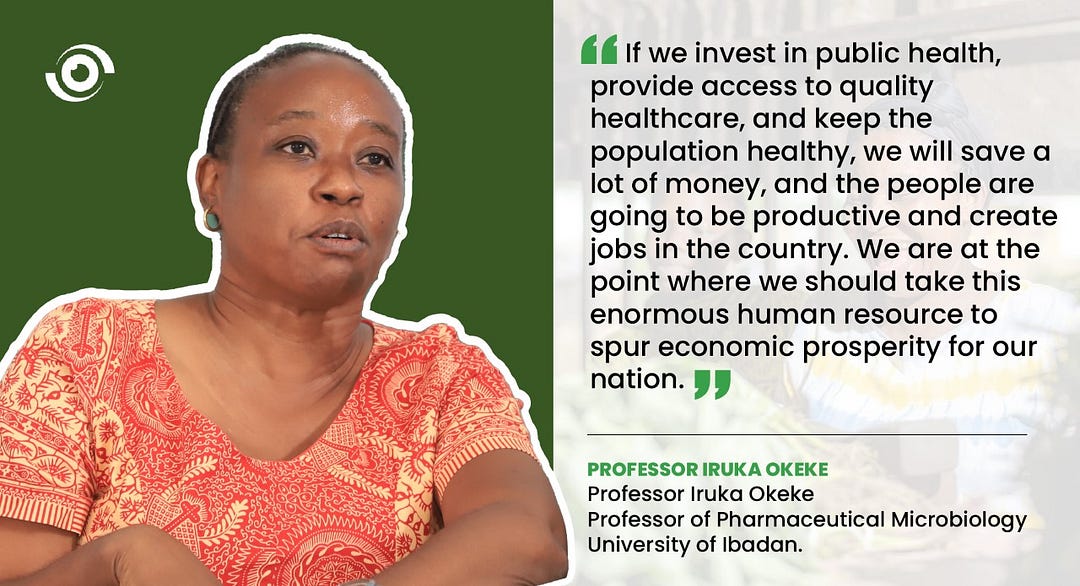
The making of the Report
Over a two-year period, the group of experts studied health inequality in Nigeria and examined population health outcomes in the country between 1998–2019. The team found that dismal health outcomes are holding back the progress of Nigeria and threaten the future of an otherwise dynamic nation, despite its large economy and population and higher health expenditure since 2001.
The study analysed gender patterns of mortality, years of life lost, years lived with disability, life expectancy, healthy life expectancy, and health system coverage and concluded that Nigeria compares less favourably than similar nations in West Africa.
Following the findings of the report, here are some recommendations that were presented for consideration by the government to achieve Universal Health Coverage:
- A new social contract centered on health must be developed to address Nigeria’s need to define the relationship between the citizen and the state.
- Given Nigeria’s young population, prevention should be at the heart of health policy, and this requires a whole-of-government approach and community engagement.
- The government should create a healthcare reform programme to deliver a centrally determined, locally delivered health system, including providing health insurance coverage for 83 million poor Nigerians who cannot afford to pay premiums.
- Build a health system that encourages innovation and engages communities, to ensure that existing nationally driven schemes have local buy-in and are sustainable; and reforming the policy and regulatory landscape to unleash the market potential of the private sector.
- Improve health financing and ensure better accountability and distribution of resources by increasing the proportion of spending and improving the efficient use of existing resources devoted to health to help defragment and decolonise the Nigerian health landscape.
- Do a whole system assessment of the investment needs in Nigeria’s health security. This is especially imperative as the COVID-19 pandemic exposed weaknesses in the nation’s health security.
- Federal and state governments should fund and lead the development of standards for the digitisation of health records and better data collection, registration and quality assurance systems.
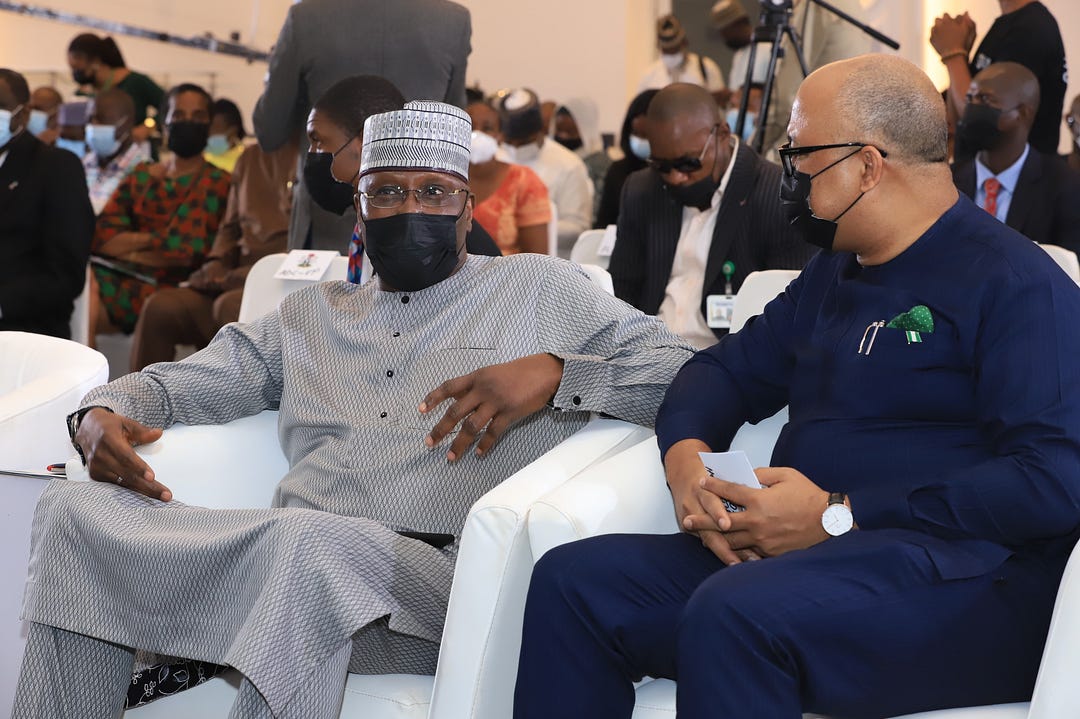
The Lancet Nigeria Commission is a landmark report that x-rays the major obstacles of the Nigerian health sector and charts a new path toward delivering equitable and optimal healthcare for all. Governments at all levels, stakeholders and ordinary citizens must commit to taking immediate steps to ensure the report recommendations are incorporated into health policy. “A commitment to a ‘One Nation, One Health’ policy would prioritise the attainment of Universal Health Coverage for all, particularly for the most vulnerable Nigerians, who bear an unacceptably high disease burden”, Professor Abubakar said.
This report marks an important baseline from which progress must be made.


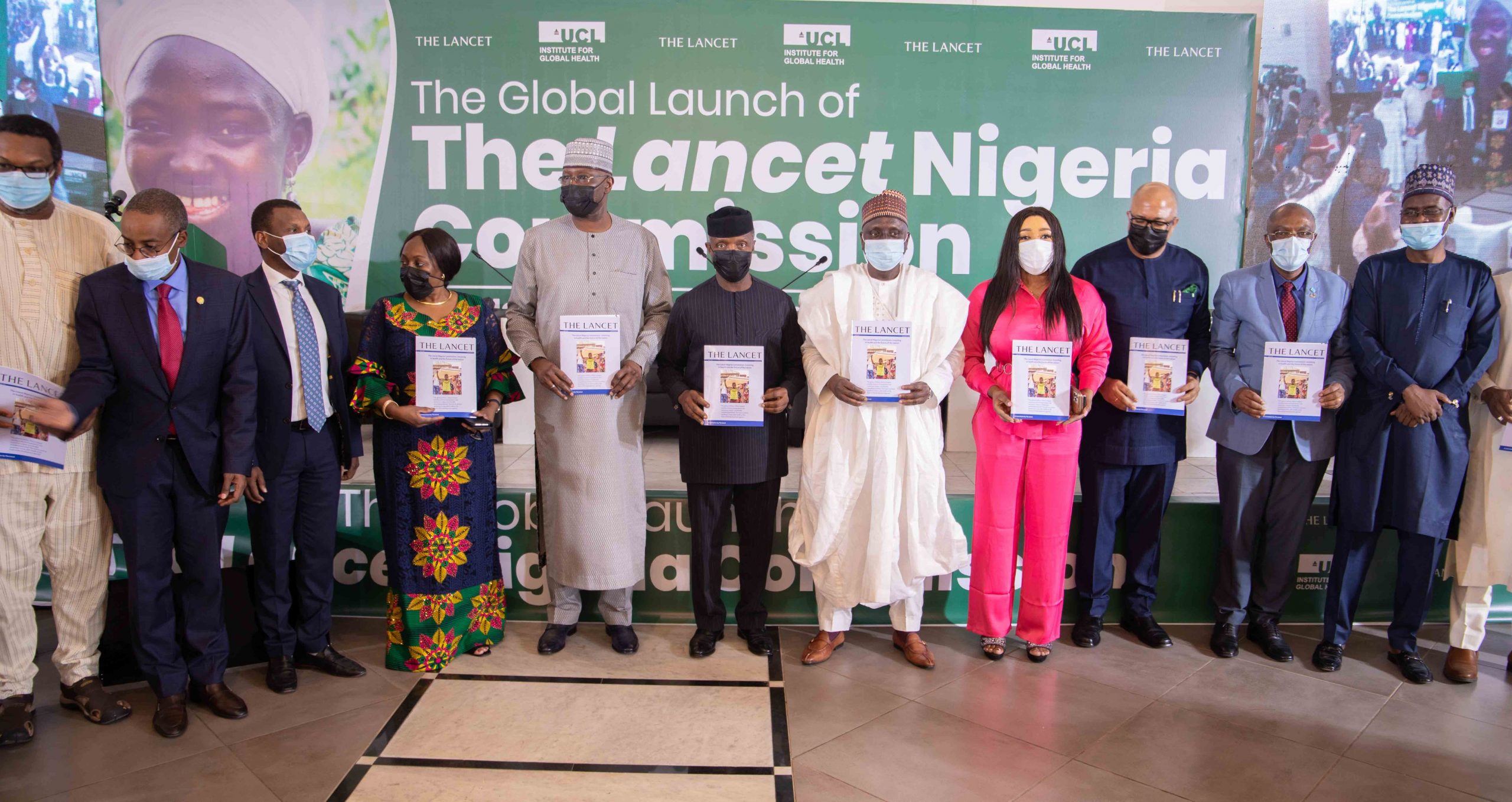
I was at the event. It is indeed a milestone.
Well-done.
I would like to stay abreast of events and news.
Ayobola-Annie ALO
Founder/CEO Edengates Group
EDENGATES GROUP/HEALTH BROADCASTING SERVICE® HBS™ Radio Live Channel
https://www.healthbroadcastingservice.com
Health Broadcasting Service® HBS™ Radio Live 👉 https://bit.ly/hbsradio
https://momentswithannie.com